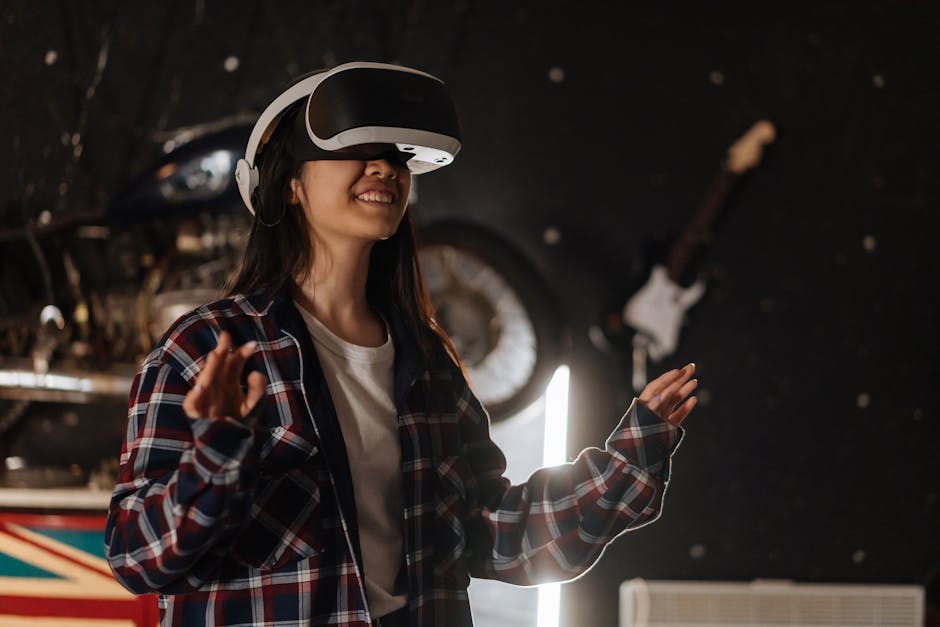The Future of Workplace Technology: 6 Exciting Trends to Watch
"The workplace is constantly evolving, and technology plays a crucial role in shaping its future. From smart offices equipped with cutting-edge tech to personalized hot desking experiences, this article explores six exciting trends that will define the future of workplace technology. "

The workplace is constantly evolving, and technology plays a crucial role in shaping its future. As we move further into the 21st century, we can expect to see a range of exciting developments that will transform the way we work. In this article, we'll explore six key trends that will define the future of workplace technology.

1. Smart Offices Powered by Advanced Technology
One of the most significant trends in workplace technology is the rise of smart offices. These high-tech workspaces will be equipped with a range of advanced technologies designed to enhance productivity, collaboration, and employee well-being.
Smart boards in meeting rooms will enable hybrid brainstorming sessions, while facial recognition software will replace traditional keys and badges for secure access. These innovations will create a seamless and efficient work environment that adapts to the needs of modern employees.
2. Smartphones as Workplace Remotes
Just as smartphones have become an integral part of our personal lives, they will also play a central role in the future workplace. Employees will use their smartphones to control various aspects of their work environment, from adjusting lighting and temperature to reserving desks and meeting rooms.

With the power of a smartphone, navigating the workplace will become more intuitive and personalized, allowing employees to tailor their experience to their individual preferences.
3. Expanded Range of Reservable Resources
In addition to desks and meeting rooms, the future workplace will offer a wide array of reservable resources to enhance employee convenience and well-being. From company shuttles and parking spots to lockers and meal ordering, technology will streamline the process of accessing these amenities.
Imagine arriving at the office, parking in your reserved spot, and having a fresh cup of coffee and breakfast delivered to your automatically adjusted desk. This level of personalization and convenience will become the norm in the workplaces of tomorrow.
4. Personalized Hot Desking Experiences
Hot desking has already become a popular trend in hybrid workplaces, allowing employees to reserve desks for specific days or hours. As technology advances, hot desking will become even more personalized and automated.

Desk booking solutions will save individual ergonomic preferences and even suggest desks near preferred colleagues. Smart technology will guide employees to their reserved desks and allow them to customize their workspace with a tap of their smartphone.
5. AI-Driven Meeting Room Optimization
With meetings consuming a significant portion of the workweek, optimizing meeting room bookings will become a priority. Artificial intelligence (AI) will play a key role in enhancing the functionality and efficiency of meeting room reservations.
AI-powered systems will automatically adjust room assignments based on meeting size and attendee preferences, ensuring that resources are used effectively and efficiently.
6. Enhanced Digital Collaboration through VR
As remote work continues to be a significant part of the modern workplace, technology will evolve to facilitate more immersive and engaging digital collaboration experiences. Virtual reality (VR) will emerge as a powerful tool for bridging the gap between remote and in-office employees.

With VR technology, remote workers will be able to virtually "enter" the same meeting room as their in-office colleagues, creating a sense of presence and fostering more effective collaboration.
The future of workplace technology is both exciting and transformative. As these trends continue to shape the modern workplace, it's crucial for IT managers and decision-makers to stay informed and adapt their strategies accordingly.
By embracing these technological advancements, organizations can create workplaces that are not only more efficient and productive but also more engaging and fulfilling for their employees. The key to success lies in striking the right balance between innovation and employee well-being, ensuring that technology serves as an enabler of a better work experience for all.
Want to learn more about Room Booking?
Explore our complete guide with more articles like this one.


